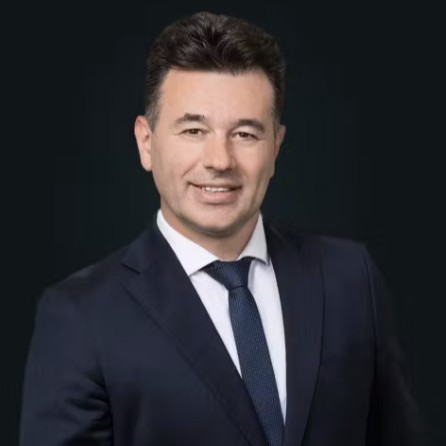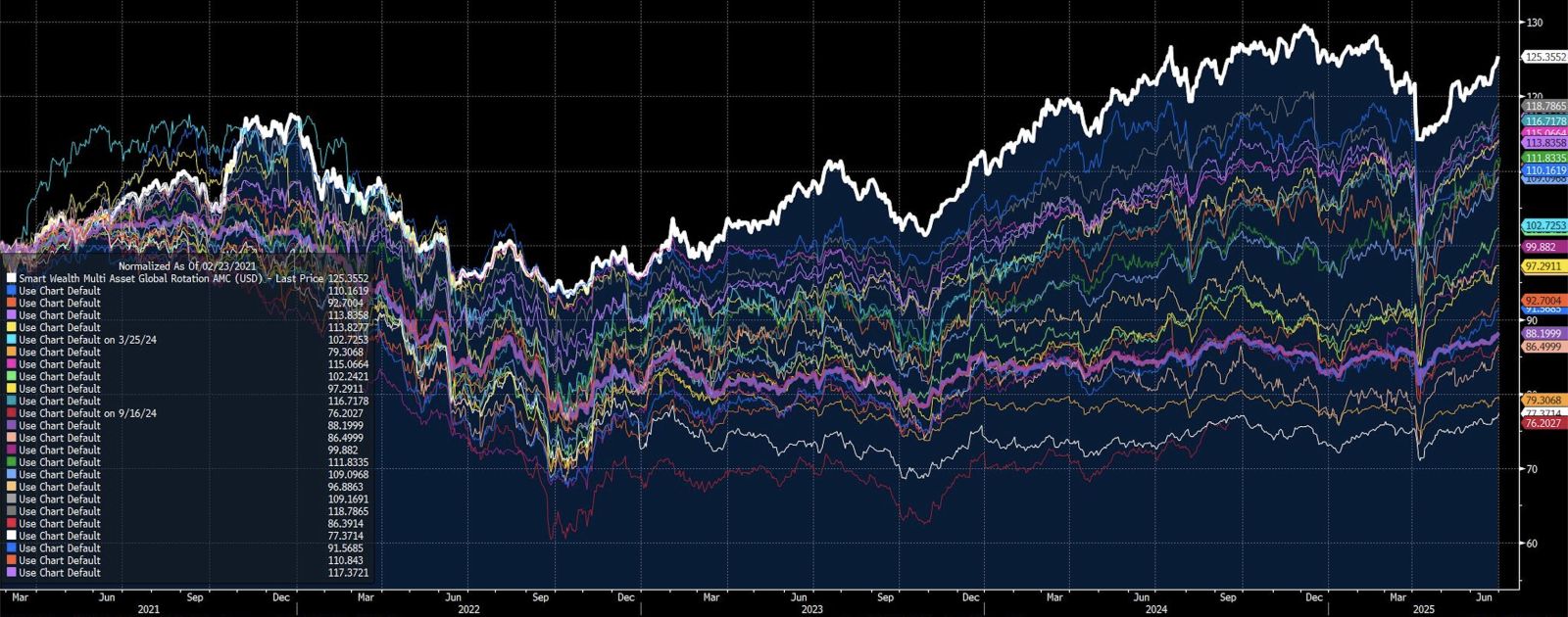Asset Management
Taking Emotion Out Of Investing – In Conversation With Smart Wealth's CEO

WealthBriefing talks to the chief executive and founder of a Swiss asset management firm that is using AI to guide stock and bond investments.
When markets jump around – for example the crash in
early March 2020 amidst the pandemic or rebounding after the
April 2025 selloff – investors who succeed in avoiding
the worst losses and who can capture returns have a reason to be
pleased.
In all the ways that portfolio managers try to avoid the
“noise” of media coverage of current events and other forces, one
is the approach that taps into the science of neural
networks, which is an important element of artificial
intelligence. These days, it is argued, you need AI to help
avoiding mistakes. Above all, taking human emotion out of the mix
is important.
Dr Miro Mitev (pictured), founder and CEO, Smart Wealth based in
Zurich, is using AI to automate investment management. In July,
the firm launched its Irish Collective Asset-management Vehicle
(ICAV), an umbrella structure with two sub funds: the SW Multi
Asset AI Flagship Fund and the SW Global Equity Plus AI
Fund. The ICAV expects more than $100 million from investors
from Europe, the Middle East, Asia, and Australia. The structure
aims to secure $2 billion in assets over the next three years.
Seed share class investors include family offices around the
world.
As explained by Smart Wealth on its website, “every purchase and
sale in our AI-controlled investment process is based on data and
facts,” completely stripping out the human element and risks
of emotions entering the mix. The firm’s forecasting models
handle variables such as macroeconomic, fundamental and technical
inputs of different frequencies. When tailoring a strategy to
match a client's requirements, a client can, for example,
choose what industries they want to include. The idea is to
build an “optimal portfolio” with the highest return for a given
risk level.
Dr Mitev is ambitious about what Smart Wealth can achieve.
“We want to be a core asset manager for the industry worldwide.
We want funds to be in the multi-billions [AuM] in three to five
years,” he told WealthBriefing in a recent
interview.
“Our system is not built on news…our system is not reacting to
noise but to hard data and causal leading indicators…it
looks at what information is significantly important and what is
not,” Dr Mitev said. “It identifies turning points and the
probability that a future change of direction is very high.”
“This is very robust in different market cycles,” he
said.
Dr Mitev said that to demonstrate how it worked, just before the
global pandemic broke, Smart Wealth shut 60 per cent of its
portfolios two weeks before markets collapsed in early March
2020; it later restored portfolio positions one and a half months
later. On the Russia/Ukraine story, it moved into cash on 3
January 2022 by reducing its bonds exposure and on 25 January
2022 cut its equity`s exposure to avoid some of the most
significant market setbacks.
Using this process, for example, a portfolio might move
into cash for a particular period.
Smart Wealth Asset Management – to give its full name
– has $400 million of AuM, and a team of 30 professionals
across Europe, the Middle East and Asia. The firm said it is a
consistent top tier performer; its model portfolio has beaten its
composite index by 6.5 per cent per annum.
Smart Wealth gives this chart showing top-tier performance,
until July this year, among prominent multi-asset products.
The white line has Smart Wealth at the top.

(Data source: Smart Wealth, Bloomberg.)
The AI impact
The rise of investment houses such as Smart Wealth underscores
the growing use cases of AI, although immense computer power has
been applied to trading systems for years.
Dr Mitev has more than 25 years of experience in what can be
called the quantitative area; he started his involvement
with AI in the late 1990s. He has worked in investment
banking and asset management and built strong experience in
applied research in areas such as operations research, statistics
and portfolio optimisation. Dr Mitev wrote his master’s thesis on
neural networks and their applicability to the stock market,
applying his insights to stock market investing.
And what did the evidence show? Via empirical data, Dr Mitev
said he found that using a neutral network approach improved
the accuracy and reliability of stocks forecasting.
Over the years, Dr Mitev developed trading technology and
insights for banks and asset managers. There is also an academic
side: he has taught at Vienna University of Economics and
Business Administration.
Making new data-driven approaches can work today because
technology makes them possible.
It is easier to develop such quant models today because data and
computational speed is more available and the technology that can
handle it is more sophisticated and powerful.
Stocks and bonds
Smart Wealth only works in the areas of blue-chip listed equities
and stock/bonds ETFs. The firm provides investment products to
institutions and professional investors, including family
offices.
Firms that have used Smart Wealth's forecasts include JP Morgan,
Commerzbank, Fidelity Investment Services, Merrill Lynch, Hyundai
Asset Management, Nomura, Société Générale, and Santander Asset
Management.
Dr Mitev says interest has been positive: “They [users] want
double-digit returns and they want daily liquidity…an annualised
return of 14 to 15 per cent.” Private banks and independent asset
managers are interested in what SW is doing; there has been
“strong” interest in SW funds, he added.